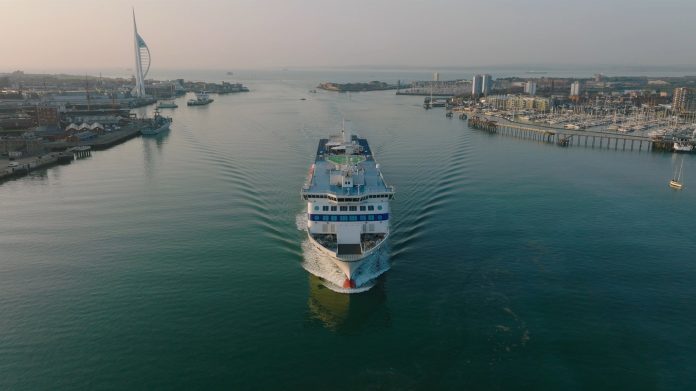The Zero Emissions Vessels and Infrastructure competition (ZEVI), sponsored by the UK Government and implemented in collaboration with Innovate UK, has awarded Portsmouth International Port approximately US$25 million (GB£19.8 million).
The grant is expected to enable the UK port to launch a ground-breaking decarbonisation initiative with Brittany Ferries, as well as the University of Portsmouth, MSE International, B4T, IOTICS, and Swanbarton.
The SEA CHANGE project will design, install, and manage a “shore power” system across three of Portsmouth International Port’s busiest berths.
This allows visiting ferry or cruise ships to switch off their engines while in port since they will be able to “plug in” and utilise green electricity to power their onboard systems.
The installation of shore electricity will minimise hazardous pollutants and enhance air quality in the port area. The system is expected to save more than 20,000 tonnes of CO2e per year beginning in 2027. This equates to the annual carbon footprint of around 2,500 households in the United Kingdom or 11,111 round-trip flights from London to New York.
Moreover, this ambitious project reaffirms Portsmouth International Port’s commitment to reducing the impact of operations on neighbouring communities while also contributing to the city’s overall goal of being net carbon neutral by 2030.
Also, Brittany Ferries will launch two new LNG-electric hybrid vessels in 2025, powered by a combination of cleaner liquefied natural gas (LNG) and battery power.
With shore power available at the port, they will be able to charge their batteries and operate on battery power while manoeuvring in Portsmouth Harbour, improving air quality and supporting the industry-wide transition to zero-emission shipping.
The project will be carried out by a combination of academics, maritime professionals, and some of the UK’s most promising technological SMEs, in collaboration with Portsmouth International Port and Brittany Ferries.







